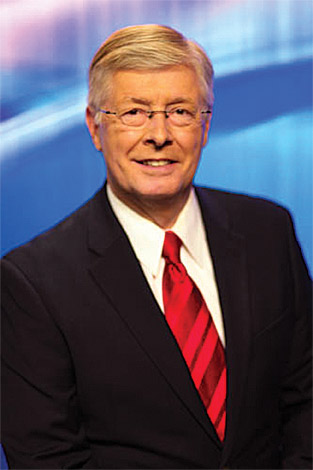
By Debbie Gardner
debbieg@thereminder.com
Sid Starks Financial of East Longmeadow has been helping families and small businesses throughout the area with retirement planning and risk management for the past 21 years.
With all the changes 2017 has brought so far, Prime asked Starks for his take on how the shifting political and financial scene might affect investors. Here’s what he told us:
Q: Whenever the status quo changes – there’s a new administration, a shift in alliances, political uncertainty in world – financial markets react. What should investors do when facing volatility?
A. “2017 brings the United States new leadership. So, half the country is upset and half the country is excited. This happens every four or eight years. My first advice is for both sides not to overreact with their retirement planning. You should be sitting with your advisor at least yearly to review your goals and financial positions. Your advisor should always be available to help with your concerns and questions.”
Q: Does an investor’s age have an impact on how he or she should react?
“Your number one goal is to make sure your money outlives you and you don’t outlive your money. My approach is based on principles that work over time and not in a few weeks. The first is you must have faith in the future. I remember in 1995 being asked if the market will hit 5,000 points. In January of that year it was at 3,850. People never believed it would pass the 5000-point barrier and it did. Now look at the market. We are hovering just above 20,000.
“Yes, we have seen two dramatic corrections. That’s where the other disciplines come into play.
“You should be patient and realize it is rare to time the market. If you jump in and out constantly more than likely you will lose money. This requires discipline not to overreact to what people on the street or the media say and to stick to the principles.
“Your advisor should also make sure your portfolio is invested properly through asset allocation. This means the amount of your money you have in stocks, bonds and cash. A series of questions can help determine your risk tolerance or where you are comfortable to invest your money. If you don’t like to take chances, you should not be invested in a foreign country. Remember the goal is to enjoy a long retirement and not to have sleepless nights.
“Diversification comes after you have determined the percentage of your money you want in stocks, bonds and cash. You probably know someone who was completely invested in technology back in 2000. They were enamored by the high returns of technology stocks. Many lost most of their savings by having of their retirement plan invested in this one area. A small portion would have been much better. Ideally you spread your money over a different stock sectors such as utility, financial and healthcare companies to name a few.
Rebalancing is the final principle. This realigns your portfolio to its target diversification. For example, you could have 50-percent of your money in stocks and 50-percent in bonds. The stocks could have performed well and changed your allocation to 70 percent stocks. Rebalancing will sell some of the stocks and buy more bonds and return the portfolio back to 50/50.
“One big factor that plays into the principles is your age. The idea is as you move closer to retirement, you want less risk for your retirement plan. Your advisor can help you move to a more conservative portfolio.”
Q: Are there other considerations that might be important as investors plan for 2017 and beyond? Are there trends to watch for?
“Each year economic prognosticators attempt to predict what the market will accomplish. 2017 has started out very positively. However, corporate earnings will continue to drive the market. It is up you to stay focused and not to be greedy when the market increases and to stay focused when there is a market correction.”